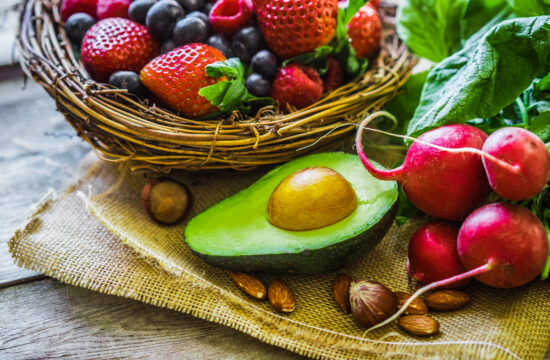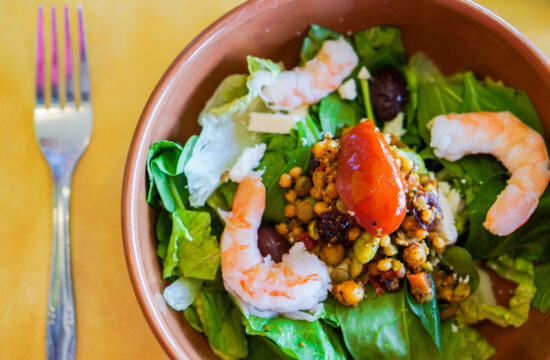Eat Enough Protein
Understanding Protein’s Role
When I first started dieting, I didn’t realize how crucial protein was for maintaining my muscle mass. It not only helps in muscle repair but also keeps you feeling full longer. Rethinking my meals to include sufficient protein made a world of difference.
I learned that aiming for around 1.6 to 2.2 grams of protein per kilogram of body weight is a good benchmark. It might feel excessive at first, but once I got into the groove of adding protein-rich foods like chicken, fish, eggs, and legumes to my meals, I noticed my energy levels soaring.
Need a Strong Nutrition Boost for Your Diet? Take a Look...
Mixing things up with protein sources helps keep my meals interesting. Swap between animal and plant proteins, and don’t shy away from trying new recipes to keep your taste buds happy!
Timing Your Protein Intake
Something I discovered along the way was the importance of protein timing. Spreading protein intake throughout the day helps in muscle recovery and synthesis. I like to have a solid protein source in every meal and even as a snack.
Try having a high-protein breakfast. It sets a great tone for the day. I usually whip up a protein smoothie or enjoy some Greek yogurt with fruits and nuts; it’s a lovely boost to kickstart my morning.
Post-workout, I ensure I hit my protein goal. Your muscles are especially hungry for that protein after a good workout. Having something like a protein shake or a chicken salad within an hour of exercising works wonders!
Need a Strong Nutrition Boost for Your Diet? Take a Look...
Choosing Quality Sources
Not all proteins are created equal. I learned to prioritize quality over quantity. Whole food options like lean meats, fish, eggs, dairy, and legumes provide essential amino acids necessary for muscle retention.
I’m also a fan of incorporating plant-based proteins like quinoa and tofu into my meals. It not only diversifies my diet but also offers different nutrients. Balance is key, and it can be exciting to experiment with various protein sources.
When I shop, I always read labels and make sure I’m choosing products with minimal additives. Keeping it as natural as possible helps maintain my overall health while supporting my muscle mass.
Stay Consistent with Resistance Training
The Importance of Lifting
One of the biggest revelations for me has been how essential resistance training is while dieting. It’s easy to cut back on everything when you’re trying to shed some weight, but if you stop lifting weights, you might lose more than just fat.
I try to keep my workout schedule consistent—aiming for at least three to four sessions of resistance training per week. Incorporating compound movements like squats and deadlifts keeps my body engaged and helps preserve muscle mass.
Even when I’m short on time, I’ve found ways to squeeze in mini workouts. Just a quick body-weight exercise session or circuits can keep your muscles active and stimulated. It’s about finding what works for you and sticking with it!
Progressive Overload
Another key aspect is understanding progressive overload. I’ve learned that to continue building strength and maintaining muscle mass, I need to challenge my muscles consistently. This doesn’t mean a complete overhaul every time; even small adjustments matter!
For me, that might mean adding an extra set or a few more reps to my typical workout. It could also involve increasing the weights I lift gradually. Over time, these incremental changes keep my muscles adapting and engaged.
Documenting my workouts has been really helpful. It allows me to track my progress and pushes me to keep striving for improvement. Whether you use an app or a simple notebook, having a visual reminder of how far I’ve come motivates me to keep going.
Prioritize Recovery
As vital as training is, I realized that recovery days are just as important. My body needs time to repair and grow, and I often underestimate how pivotal rest is to muscle maintenance while dieting.
I make sure to incorporate active recovery days—think light walks, yoga, or stretching. This helps keep my body moving without putting too much strain on it. Listening to my body is crucial; if I’m feeling fatigued, a chilled-out day can be exactly what I need.
Also, don’t overlook sleep! I’ve found that getting 7-9 hours of restful sleep each night supports muscle recovery and overall well-being. It’s all interconnected, and I’ve particularly enjoyed tracking my sleep patterns to see how they affect my workouts.
Hydration is Key
The Role of Water in Muscle Maintenance
I cannot stress enough how important hydration is, especially when dieting. Water plays a vital role in muscle function and recovery. When I don’t drink enough water, I feel sluggish and my workouts suffer significantly.
For me, keeping a water bottle handy at all times made a huge difference. I aim for at least 2-3 liters a day to maintain optimal hydration. Plus, it helps curb hunger pangs, which can sometimes trick you into thinking you need food when a glass of water would do the trick!
Also, remember that hydration needs increase with intense workouts. I’ve learned to pay attention to how I feel and adapt my water intake accordingly. After a sweaty session, I often replenish with electrolyte-rich beverages too.
Good HealthY DIETING Solution is Easier Than Most People Think!
Take a Look for Yourself!
Recognizing Signs of Dehydration
Being aware of dehydration signs is really crucial. Symptoms like fatigue, dizziness, and dry mouth are obvious indicators that I need to hydrate. I’ve also noticed that muscle cramps can be a huge red flag for me, reminding me to drink up!
It’s easy to overlook hydration when you’re busy, but I’ve made it a habit to sip water consistently throughout the day. Setting reminders on my phone has been a game-changer, ensuring I don’t forget especially on hectic days.
Another tip? Make a habit of drinking water before, during, and after workouts. This has become part of my routine now, and it really aids in my overall performance and recovery post-exercise.
Incorporating Hydrating Foods
Not all hydration needs to come from water alone. I love snacking on fruits and veggies that are high in water content. Things like cucumbers, strawberries, and watermelon not only quench my thirst but also provide essential nutrients that help support muscle health.
Salads are my go-to for meals because they’re packed with hydrating ingredients. Mixing in things like lettuce, tomatoes, and bell peppers makes my dishes colorful and refreshing. Plus, it’s an easy way to get the vitamins and minerals my body craves.
Overall, combining proper hydration with nutrient-dense foods has become a staple of my diet that keeps me energized and helps me maintain my hard-earned muscle mass as I navigate through my dieting journey.
Track Your Progress
Keeping a Food Diary
One thing that’s really helped me stay on track is keeping a food diary. Writing down what I eat not only keeps me accountable but also lets me evaluate my diet varieties. When I can visually see everything laid out, tweaking my meals and ensuring I get enough protein becomes much easier.
Apps or even a simple notebook work wonders for this. I like to take a moment every evening to jot down my meals, and it can also help in recognizing patterns—like cravings or areas where I might need to adjust my nutritional intake.
Plus, looking back through my diary helps me celebrate the progress I’ve made over time. Each week brings new successes and lessons, and it’s always exciting to see what foods align with my goals!
Measuring Body Composition
I also learned that focusing solely on the scale isn’t the best way to measure progress. Instead, I began tracking my body composition using methods like body fat percentages and muscle measurements. This gives a more accurate picture of how I’m doing.
Using calipers or even a body composition scale at home has been enlightening. Watching my muscle mass stabilize or increase while my body fat decreases is such a rewarding feeling! It’s motivated me to continue pushing through and making smarter choices.
Besides, working with a personal trainer to do these assessments has provided professional insight and encouragement. Just knowing someone else is rooting for me keeps the motivation alive.
Setting Realistic Goals
Lastly, in this journey, I realized the importance of setting realistic and measurable goals. Whether it’s maintaining muscle mass, upping my weights, or keeping track of protein intake, those goals keep me focused.
I recommend breaking down larger goals into smaller and achievable milestones. This way, every time I hit a target, no matter how small, I feel a sense of accomplishment. It keeps me excited about the process rather than overwhelmed
Documenting these goals in my food diary or visually charting my progress helps me stay motivated. It’s all about creating a roadmap that feels rewarding as you move along. Embrace the journey; it can be just as fulfilling as the outcome!
FAQ
1. How much protein should I consume daily?
As a general guideline, aiming for 1.6 to 2.2 grams of protein per kilogram of body weight is recommended to help maintain muscle mass while dieting.
2. Can I maintain muscle mass without lifting weights?
While resistance training is highly effective for maintaining muscle mass, engaging in bodyweight exercises or other forms of resistance can still be beneficial. Consistency is key!
3. What’s the best way to hydrate when dieting?
Drinking water consistently throughout the day is essential. Additionally, include hydrating foods like fruits and vegetables in your meals.
4. How often should I track my progress?
Tracking your progress can be beneficial weekly or bi-weekly, depending on your personal preferences. This can include measuring body composition, logging meals, or assessing workout performance.
5. Is rest really that important?
Absolutely! Rest is critical for muscle recovery and overall well-being. Make sure to incorporate active recovery days and prioritize getting enough sleep to support your goals.












